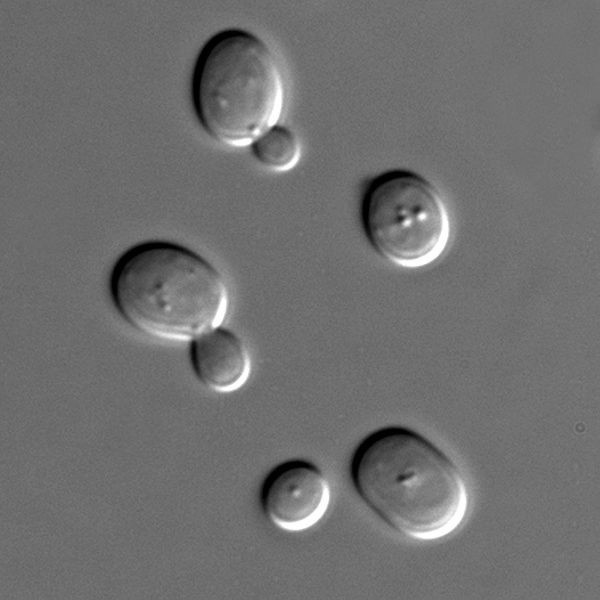Improving Yeast Genes Could Boost Biofuel Production

Making biofuels relies on yeast that converts sugars to ethanol. Scientists at the University of Wisconsin in Madison have found the genes that control that trait, opening the way to engineer better yeast strains and make biofuels more competitive.
When yeast breaks down sugar, it makes ethanol - the alcohol in drinks -- as waste. This is the familiar process used to make beer or wine. But ethanol is a toxin, and when the concentration gets high enough the yeast dies - it's the reason that even dry wines don't have the punch that whiskey does. Commercial strains of yeast use in biofuel production can sometimes tolerate a bit more, but it still isn't enough to make biofuels competitive with gasoline.
Audrey Gasch, professor of professor of genetics at UW-Madison, decided to try and find out exactly which genes control the yeast's tolerance of alcohol. To do that, her team gathered 50 different strains of yeast, and tested their tolerance to ethanol.
But rather than seeking out only the most tolerant strains - the best in this case, Gasch also sought the least tolerant as well. The group then looked at the genes that were activated in the different strains of yeast.
They discovered that the strains that had the highest ethanol tolerance activated a large number of genes. Those that were more sensitive to ethanol did not.
By comparing the responses of the tolerant and sensitive strains, Gasch and her team were able to identify the genes that with some tweaking could boost the ability of yeast to make ethanol. But that wasn't always easy, Gasch said.
Both the good and the sensitive strains will alter the expression of thousands of their genes, she said. Some 3,000 of those genes change in response to ethanol. We're trying to figure out why, as many of those genes have nothing to do with alcohol tolerance.
One discovery was that some wild strains of yeast responded differently to low doses of alcohol than their commercial cousins. The wild strains would change and become more resistant, and better able to tolerate high concentrations.
Eventually, the researchers looked at the subset of genes that not only expressed differently, but also whether the yeast was more or less tolerant of the ethanol in the wake of the expression.
That allowed Gasch's group to engineer yeast that is more tolerant than any strains before it. But the process isn't straightforward. Gasch noted that one variety of yeast was very good at making alcohol, but couldn't process simpler sugars.
Controlling the alcohol tolerance could also help other industries besides biofuels, Gasch said. In her own lab people tried making wine with some of the yeast, though the results weren't as good as real wine. It didn't have all those wonderful compounds that wine usually does, she said. But a wine or beer maker could control more precisely the amount of alcohol in the product, she noted.
Meanwhile, Gasch will keep working on the fuel problem and building a better strain of yeast. We're finding a window into what makes these strains better, she said.
© Copyright IBTimes 2025. All rights reserved.





















